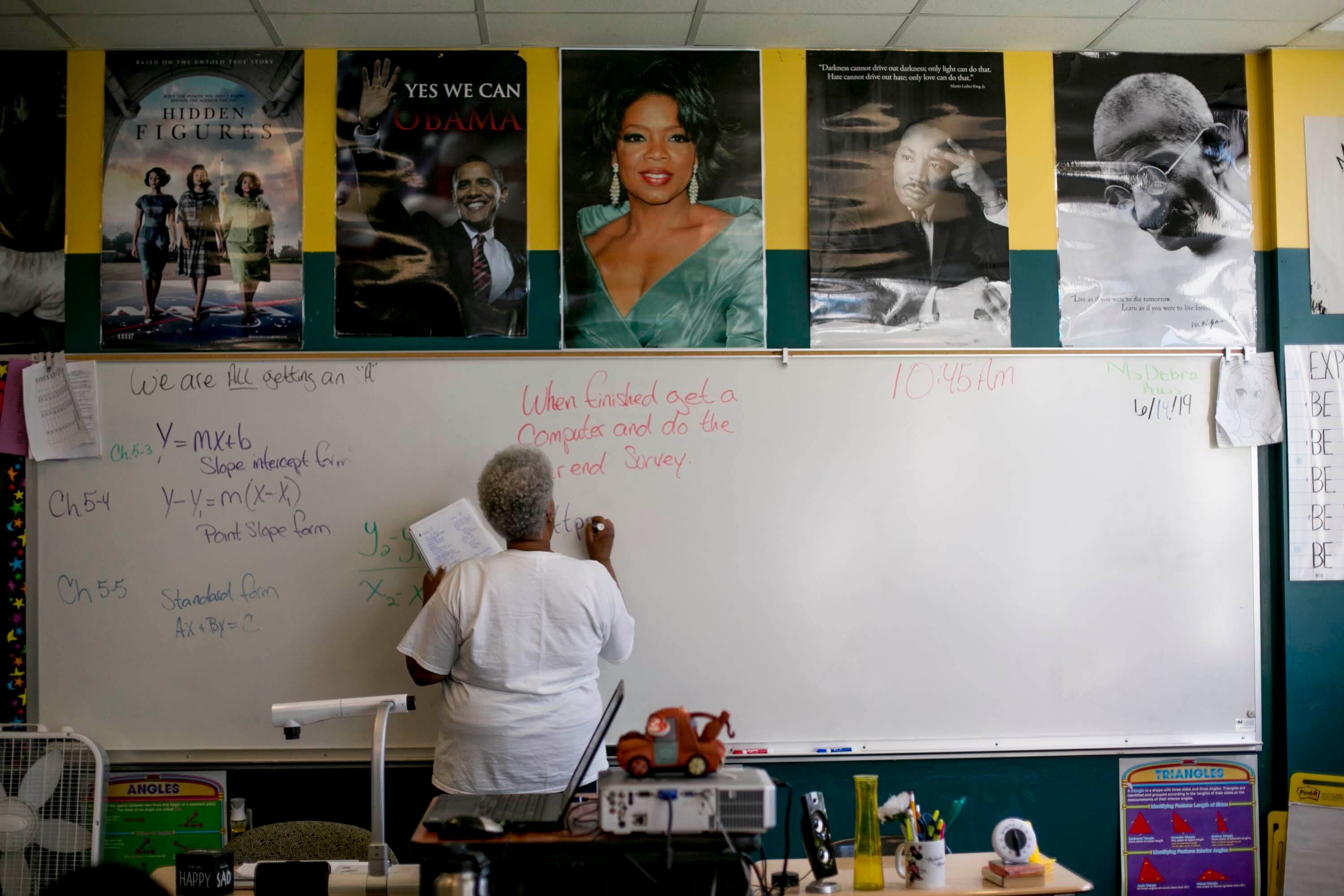Michigan schools collecting increased state aid and federal COVID relief dollars are finding that those dollars don’t go as far as they used to.
At L’anse Creuse Public Schools, a 9,400-student district in Macomb County, expenses have spiked in virtually every area, said Superintendent Erik Edoff. Bus fuel is twice as expensive today as it was in 2020. Paper costs 24% more. Natural gas is up 80%.
To help employees keep up with rising prices for consumer goods, the district paid them unscheduled raises and bonuses.
So while Edoff is thankful that Gov. Gretchen Whitmer is proposing another big funding increase for schools, he and other education leaders in the state caution that schools in Michigan still aren’t funded adequately when you account for inflation and rising student needs.
Inflation “mutes the positive impact” of the budget increases, Edoff said, “and I don’t think that’s being discussed very much.” The increases, he said, are about enough to maintain services, but don’t leave much room for improving them.
To be sure, education funding more than kept pace with inflation last year. Whitmer’s 2022-23 budget, which education leaders hailed as “generational,” provided a 16% increase in state education spending — or 7% in inflation-adjusted terms, as prices reached a 40-year high. Her budget for next year would also outpace prices.
“When Governor Whitmer described her education budget as ‘historic,’ she meant it,” Craig Thiel, research director for the Citizens Research Council, wrote in a recent blog post.
But advocates say the current pace of budget increases still isn’t enough to make up for decades of underfunding.
“The reality is, given the cost of education, there’s not enough money to do the things that we need to do,” said Molly Sweeney, organizing director for 482Forward. “COVID money is going away, we’re not keeping up with inflation, and we’re already underfunding our state as a whole.”
Inflation typically hasn’t factored into debates over Michigan’s annual education budget. For many years inflation rates were so low, that they made little appreciable difference in the impact of year-to-year funding changes.
But the pandemic and recovery period have roiled the economy. Michigan schools are getting much more funding, but part of that is going toward covering new costs for educational programs , and higher prices for basic goods and services, from fuel and food to raw materials for construction projects.
What’s more, schools face another round of fiscal reckoning once federal COVID aid ends next year.
In that context, it’s hard to tell whether school districts are unusually flush with money, or unusually strapped. The truth is a bit of both. Districts have much more money to work with than they have had in a long time, but the unpredictable effects of inflation, combined with other longstanding financial pressures, make it harder to allocate those funds.
Inflation compounds funding challenges
High prices are being felt in districts statewide. Detroit Public Schools Community District recently amended its budget to reflect several million dollars in unexpected, inflation-related costs. In Dearborn, officials ruled out a tentative plan to renovate two schools, pointing to rising building costs.
In rural Michigan, where school buses travel long distances, higher fuel prices are exacerbating already high transportation costs. “We had $100,000 in our diesel budget, and we burned through that in the first third of the year this year,” said Tom McKee, superintendent of Rudyard Area Schools in the Upper Peninsula.
Districts also face funding challenges unrelated to rising prices.
Declining enrollment, a long-running phenomenon exacerbated by the pandemic, will hurt districts financially because they are funded largely on a per pupil basis.
And staffing costs are up, part of the statewide effort to help students recover academically.
Whitmer spokesperson Stacey LaRouche pointed out that the governor’s budget proposal would exceed inflation over the coming year. Whitmer is proposing an increase of 9% for education — or 4% in inflation-adjusted terms.
“Governor Whitmer has worked to reverse decades of disinvestment in our state’s K-12 schools by securing more funding in every aspect of a child’s education to ensure that they have what they need to be successful,” LaRouche said in a statement.
The largest single item in Whitmer’s schools budget, per-pupil funding to schools, would increase 5% to a minimum of $9,608. That’s slightly less than the expected rate of inflation for this year. But it’s buttressed by substantial new proposed investments in tutoring, student loan forgiveness for teachers, and other specific programs. The per pupil increases of the last two years — 5% and 7% — are the largest of the last decade.
Thiel, from the Citizens Research Council, told Chalkbeat that Whitmer’s budget proposal would bring state spending in line with inflation over the last decade.
Sweeney and other education advocates say spending should be accelerated more to make up for a history of underfunding that goes further back.
Inflation effects may linger for some districts
While prices seemingly peaked in 2022 — Michigan economists expect inflation to drop to 5.5% this year and 3% the following year — the effects of the price spike may prove particularly persistent for school districts.
Most school spending goes to educator salaries, which are often set in three-year contracts.
Kentwood Public Schools, for instance, increased salaries for first-year teachers by 5% when its current contract began in 2021. When prices spiked, the district gave another 1% raise to all employees, plus additional scheduled pay increases. Even so, the raises hardly matched inflation.
The district will face the prospect of addressing several years of inflation when the current teachers contract expires this summer.
“The greatest impact of inflation is on our staff,” said Kentwood Superintendent Kevin Polston. “Their take-home increases aren’t keeping up with inflation. We want to increase compensation, but it’s not so easy.”
Koby Levin is a reporter for Chalkbeat Detroit covering K-12 schools and early childhood education. Contact Koby at klevin@chalkbeat.org.







